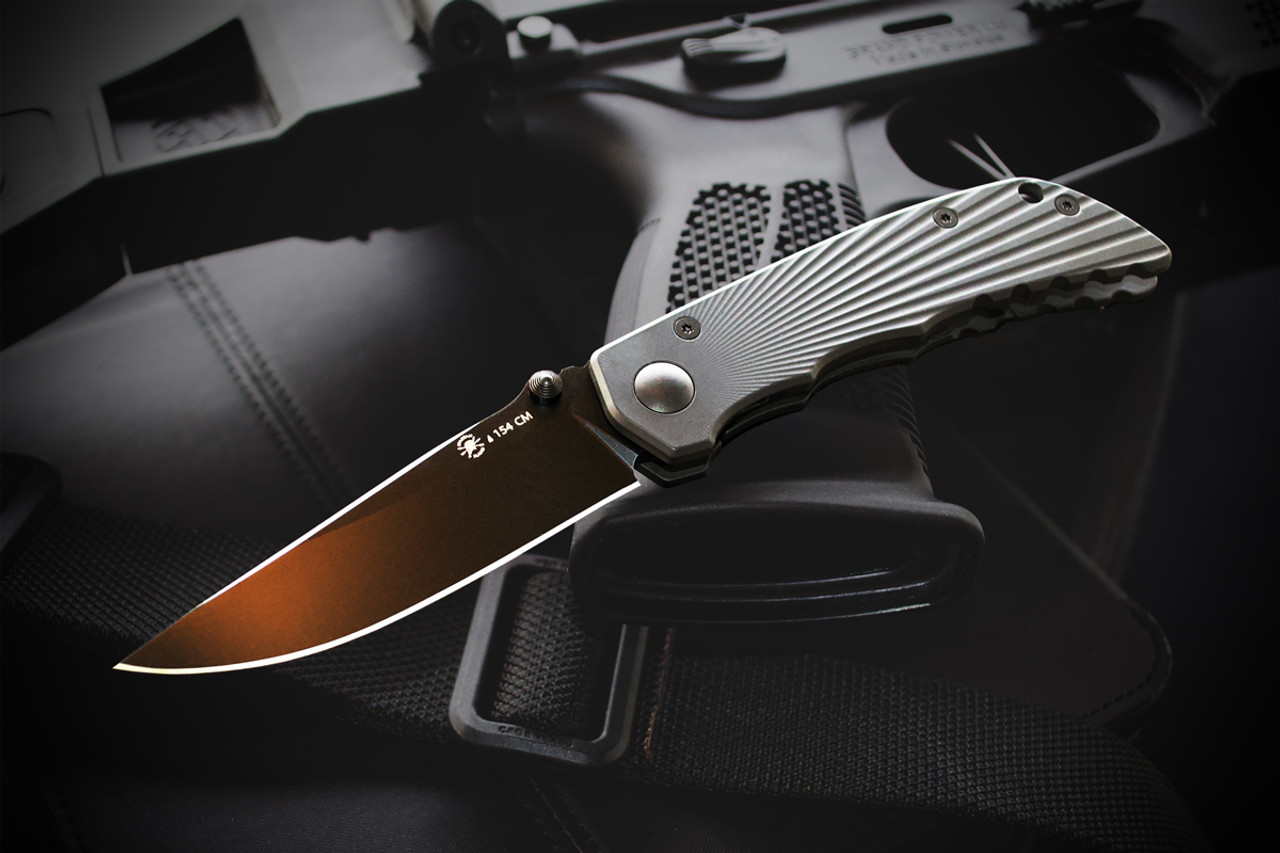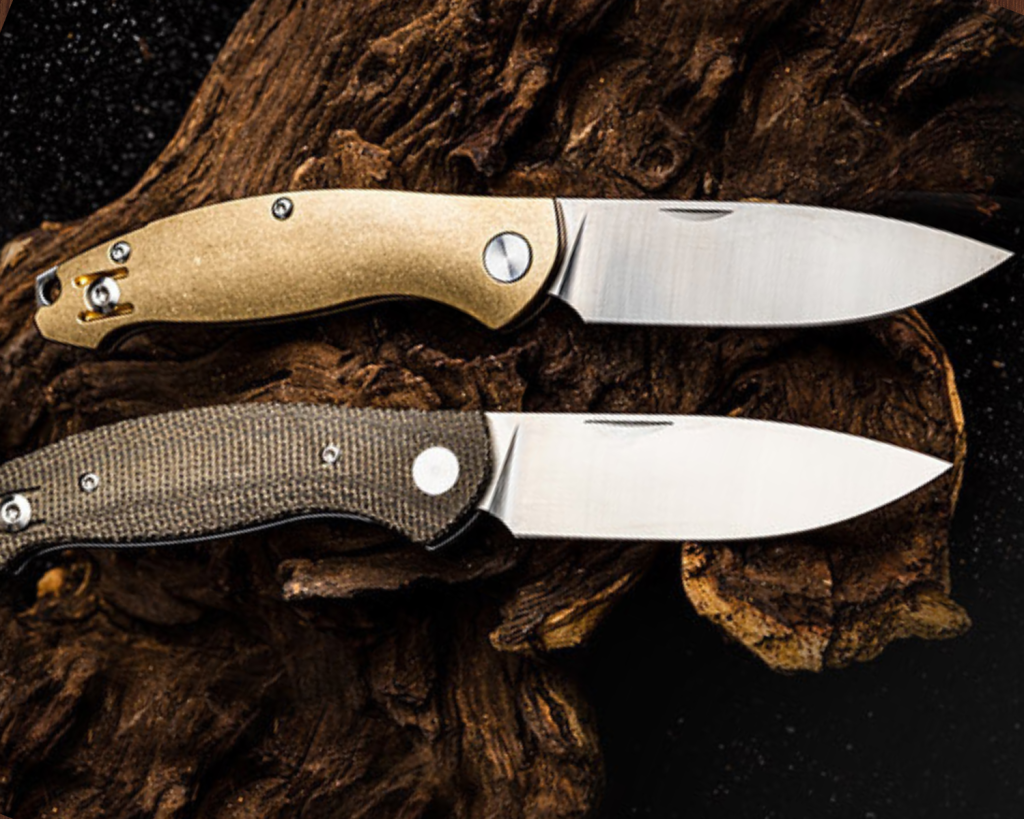In the diverse world of culinary arts, kitchen professionals often encounter a wide array of tools. While many are familiar with the standard chef's knife, paring knife, and bread knife, the concept of folding knives for self defense introduces a unique dynamic. These knives are not just tools of utility; they offer an added layer of protection. As a kitchen professional, understanding the dual-purpose nature of these knives can enhance both your culinary prowess and personal safety.
Folding knives are compact and easily concealable, making them an ideal choice for self-defense. For those working late nights or in environments where personal safety is a concern, having a reliable folding knife can provide peace of mind. But what exactly makes a folding knife suitable for self-defense, and how can kitchen professionals choose the right one?

Understanding Folding Knives: The Basics
Folding knives are distinguished by their ability to fold the blade into the handle, which makes them portable and easy to store. Unlike fixed blades, they offer the convenience of being carried discreetly. Their popularity among kitchen professionals stems not only from their utility but also from their versatility.
These knives come in various designs and blade shapes, each suited for different tasks. For instance, understanding the differences between clip point and spear point blades can help you select the most effective knife for your needs.
Choosing the Right Folding Knife for Self Defense
For kitchen professionals, selecting the right folding knife involves considering several factors. Blade material, handle design, and locking mechanism all play crucial roles in the knife's overall performance and safety.
The blade's material should be durable and resistant to corrosion, especially given the humid and often acidic environments found in kitchens. Stainless steel is a popular choice due to its strength and resistance to rust.
Handle design is equally important. A non-slip, ergonomic handle ensures a firm grip, reducing the risk of accidents during use. Additionally, a reliable locking mechanism is essential to prevent the blade from accidentally closing during use.
Blade Shapes and Their Implications
The shape of the blade significantly influences its performance in self-defense scenarios. Pointed blades, such as those found in tactical folding knives, can be more effective in defensive situations. The variety of blade shapes available can cater to different preferences and needs.
For kitchen professionals interested in exploring the various applications of folding knives, understanding the nuances of blade design is crucial. Whether for cutting, slicing, or piercing, the right blade shape can make all the difference.
Practical Applications in the Kitchen
Beyond self-defense, folding knives offer practical applications in the kitchen. Their versatility makes them suitable for tasks such as opening packages, slicing herbs, or even carving garnishes. Their compact nature also makes them a convenient tool for chefs on the go, such as those working in catering or food trucks.
For those interested in the everyday utility of these knives, exploring the everyday carry options can provide valuable insights into their multifunctional nature.
Maintenance and Care
Maintaining a folding knife is essential to ensure its longevity and effectiveness. Regular cleaning and sharpening are vital, particularly for kitchen professionals who rely on their knives daily. Ensuring the knife is stored correctly and kept dry will prevent rust and deterioration.
Understanding the advantages and disadvantages of folding knives can also inform proper care practices and highlight the importance of routine maintenance.
Legal Considerations
When considering a folding knife for self-defense, it's important to be aware of local laws and regulations regarding knife possession and use. Laws can vary significantly by region, and understanding these regulations can prevent legal issues.
Kitchen professionals should familiarize themselves with these laws to ensure their use of folding knives is both legal and responsible.
Conclusion
For kitchen professionals, folding knives for self defense offer a unique blend of utility and protection. By understanding the various aspects of these knives, from blade shape to maintenance, culinary experts can enhance their toolkit while ensuring personal safety.
For further exploration of this topic, consider reading about best folding knives for survival, which provides insights into selecting durable and reliable options for both culinary and personal defense needs.

FAQs
What are the key features to look for in a folding knife for self-defense?
When selecting a folding knife for self-defense, consider factors such as blade material, handle design, locking mechanism, and overall durability. A non-slip, ergonomic handle and a reliable locking mechanism are particularly important for safety.
Are folding knives legal for self-defense?
Legality varies by region, so it's crucial to understand local laws and regulations regarding knife possession and use. Check with local authorities or legal resources to ensure compliance.
How do I maintain my folding knife?
Regular cleaning and sharpening are essential for maintaining your folding knife. Ensure it is stored properly and kept dry to prevent rust and deterioration. Routine maintenance will extend the knife's lifespan and effectiveness.
This article contains affiliate links. We may earn a commission at no extra cost to you.


























